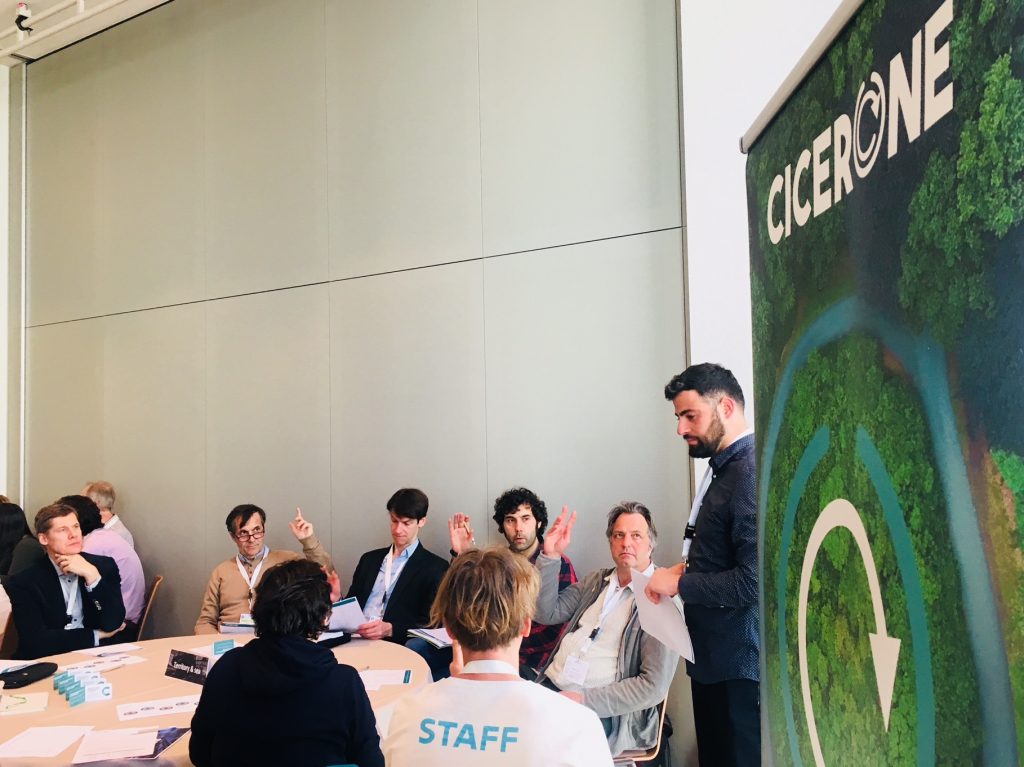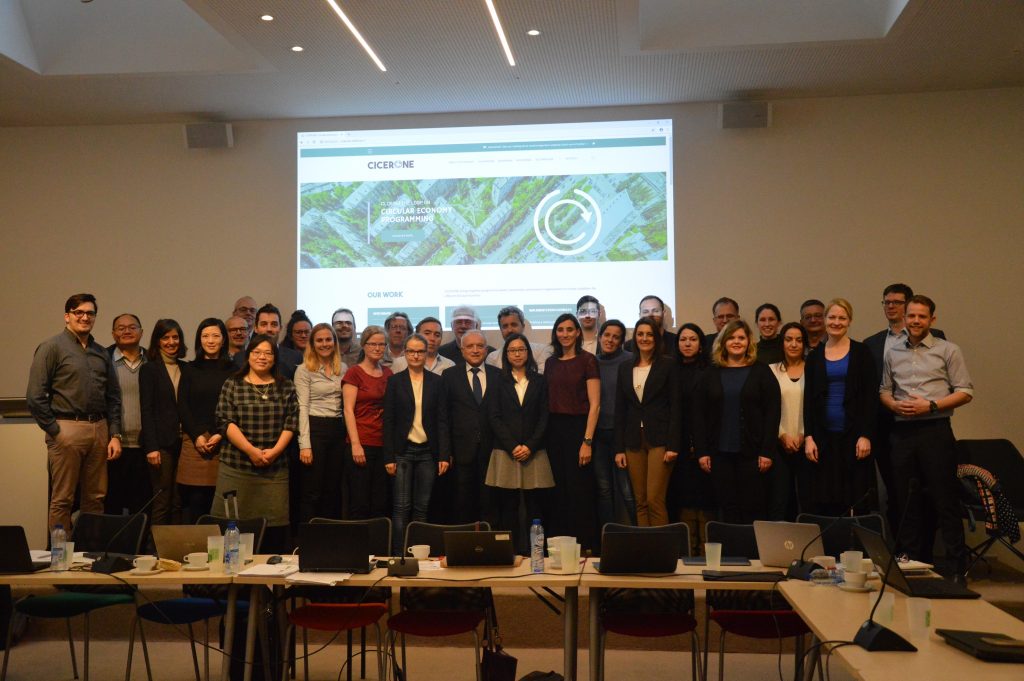How can joint programming and funding accelerate the shift to a circular economy?

A new project, CICERONE, is bringing together cities, regions, countries and EU authorities to build joint programmes and streamline funding for circular economy in Europe.
As the urgency for climate mitigation and sustainable development pathways persists, new paradigms are arising to meet the challenge of transitioning to net-zero carbon societies.
The circular economy offers an alternative solution to our current linear model of take-make-dispose by reducing waste and extraction of raw materials, as resources are continuously reused and repurposed to create new products.
A circular economy development path in Europe could result in a 32% reduction of primary material consumption by 2030, and 53% by 2050. With sustainability becoming a key part of the global agenda, it is a crucial tool for decoupling economic growth from further unsustainable resource use and increased CO2 emissions.
The European Commission has recognised this potential, and in response developed a Circular Economy package, including an Action Plan on Circular Economy launched in December 2015.
The Action Plan, which came to a close in 2019, included a variety of initiatives on specific priority themes and cross-cutting issues such as instruments, guidelines & regulation and financing programmes for the circular economy. Priority themes include plastics, food waste, critical raw materials, construction and demolition, biomass and bio-based materials.
This enabled an explosion of projects dedicated to resource efficiency across Europe and its Member States, bringing us one step closer to reaching the desired impact. But it also demonstrated several challenges that are hindering the uptake of circular economy at a wider scale:
- The outcomes of research and innovation projects are not fully exploited and promoted at European level.
- Circular businesses and projects are fragmented, making international synergies difficult.
- Circular economy funding is mostly based on single-point interventions, when an entire system change would be needed to achieve the expected results.
It has thus become more and more apparent that greater collaboration is a must to speed up the transition to a circular economy.
To fill this gap, the European Commission tasked a consortium of experts, led by Climate KIC, with developing the strategic coordination of objectives and programming of regional, national and European funding programmes for the circular economy.
This would mean that financing mechanisms for circular economy initiatives would no longer be segregated through a variety of local, national and European funding streams – but brought together under a coordinated approach and with common objectives and priorities.
Setting common priorities for circular economy in Europe
Switching to a circular economy means changing the entire system we live and operate in – and this will not be achieved through single-point interventions. A systemic approach is needed to reach impact fast – looking not only at impact assessments of existing single technologies, business models or policies, but how they interconnect and put pressure on the rest of the system to scale up results.

Cliona Howie, CICERONE Project Coordinator from Climate KIC, says:
“The first step of the process is to better understand the needs and urgencies in EU cities, regions and countries, on which we can build common priorities for circular economy action across Europe. What circular economy research & innovation programmes are already out there? How is circular economy embedded into regional and national strategies? What political agenda is set and how have priorities been identified and selected? What impact has circular economy financing achieved so far? What challenges and obstacles did they identify in the process?”
Based on the initial benchmark of current circular economy programmes, CICERONE will develop the Strategic Research and Innovation Agenda (SRIA) for circular economy in Europe, which will set common intervention priorities at European level. The priorities are being set with a variety of stakeholders from government, businesses, academia, civil society and investors around four key challenge areas identified by the EU: Cities, Industry, Value Chain and Territory & Sea.
Building a space for joint programming
Setting the scene on what already exists and what we should now prioritise is important, but the next step is even more crucial: how can we put all this into action?
CICERONE is building a platform that will help policy makers and programme owners (those bodies that fund circular economy) cooperate to speed up the transition to a circular economy.
“We want to prompt stakeholders to work together to jointly prioritise circular economy initiatives to stimulate a more holistic and cumulative approach when funding research and innovation. To increase its relevance and use, the platform is being built in collaboration with programme owners and funding agencies at EU, national, regional and municipal level”, said Cliona Howie.
At completion, the coordinated research resulting from the project will enable a variety of positive environmental, societal and economic impacts.
A joint programming platform would not only allow for more networking opportunities for all stakeholders involved, but also increase knowledge sharing that will allow a more efficient and effective implementation of circular economy programmes.
“This is even more true for research centres, universities and training centres, who will gain access to the state-of-the-art knowledge and a better understanding of international demands, that they can then feedback to governments and businesses”, adds Cliona.
Increased transparency and monitoring will also be an added value to international agencies, regulators and policy makers, as the project sets out to build a policy toolkit to support the 2020 Climate Change goals and other key EU and global initiatives, such as the Europe 2020 strategy.
“The benefits of a joint programming platform will have an impact across various drivers of change: programme owners and investors will have more clarity on where efforts need to go to optimise impact; industry and SMEs will gain access to more funding opportunities for their projects, and all will benefit from cross-sectoral knowledge sharing, enabling and accelerating a transition to circular economy, says Cliona Howie.
CICERONE has received funding from the European Union’s Horizon 2020 Research and Innovation Program. The project is led by Climate KIC and consists of 24 partners from national & regional governments, business, research & academia and civil society.
Climate KIC is Europe’s main climate innovation initiative. Supported by the European Institute of Innovation and Technology, Climate-KIC identifies and supports innovation that helps society mitigate and adapt to climate change.
For more information about the project please visit http://cicerone-h2020.eu/
